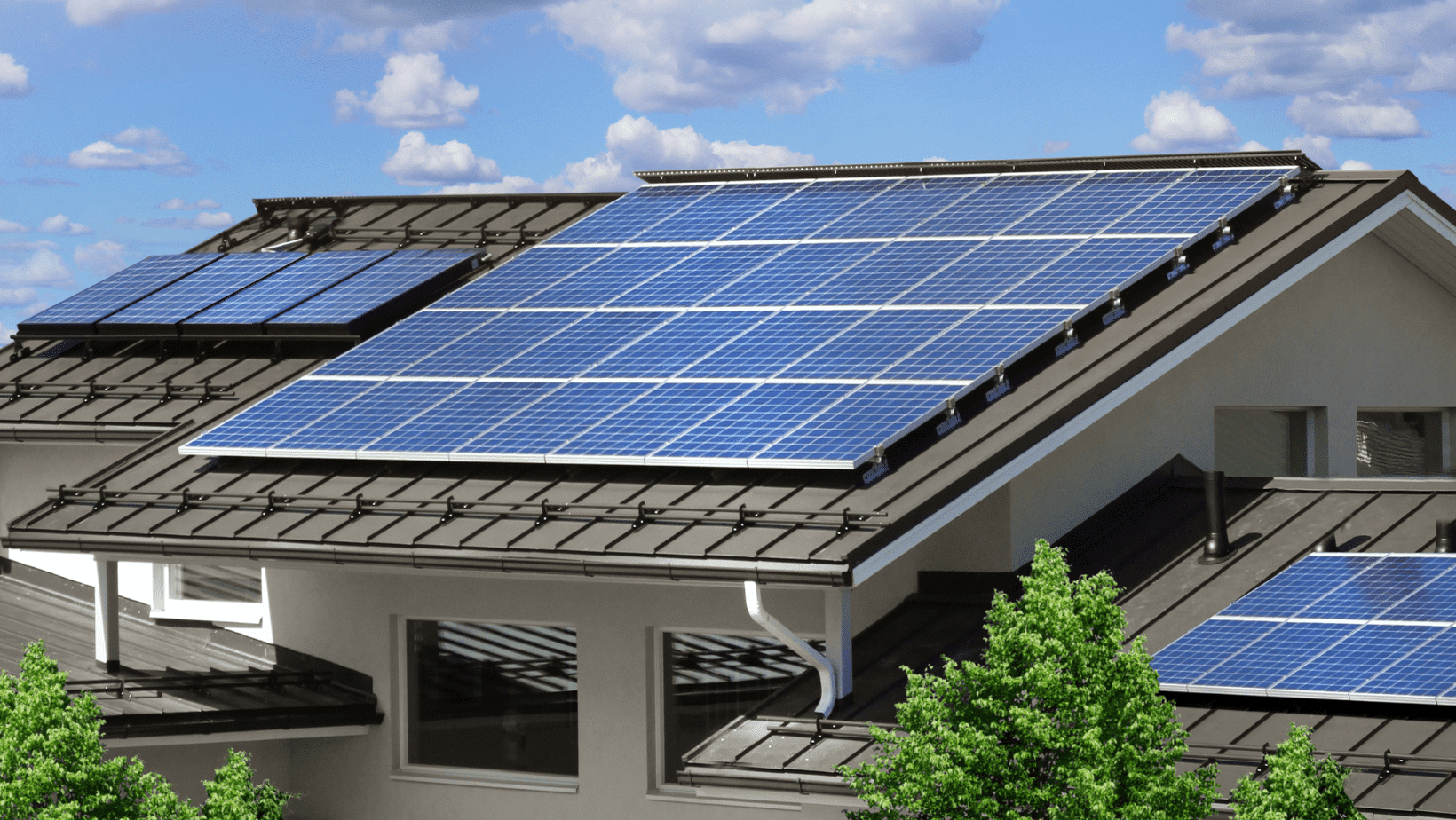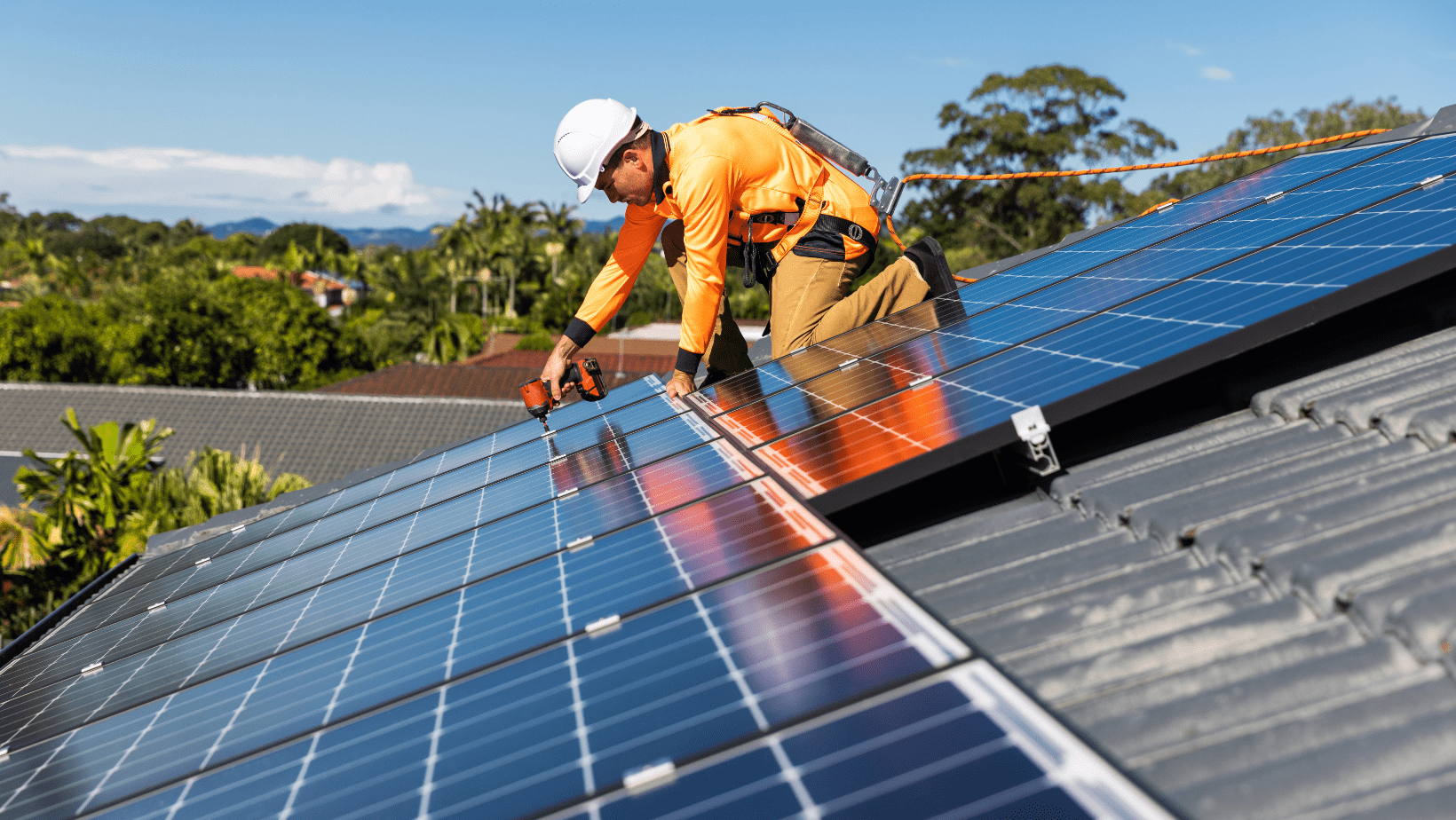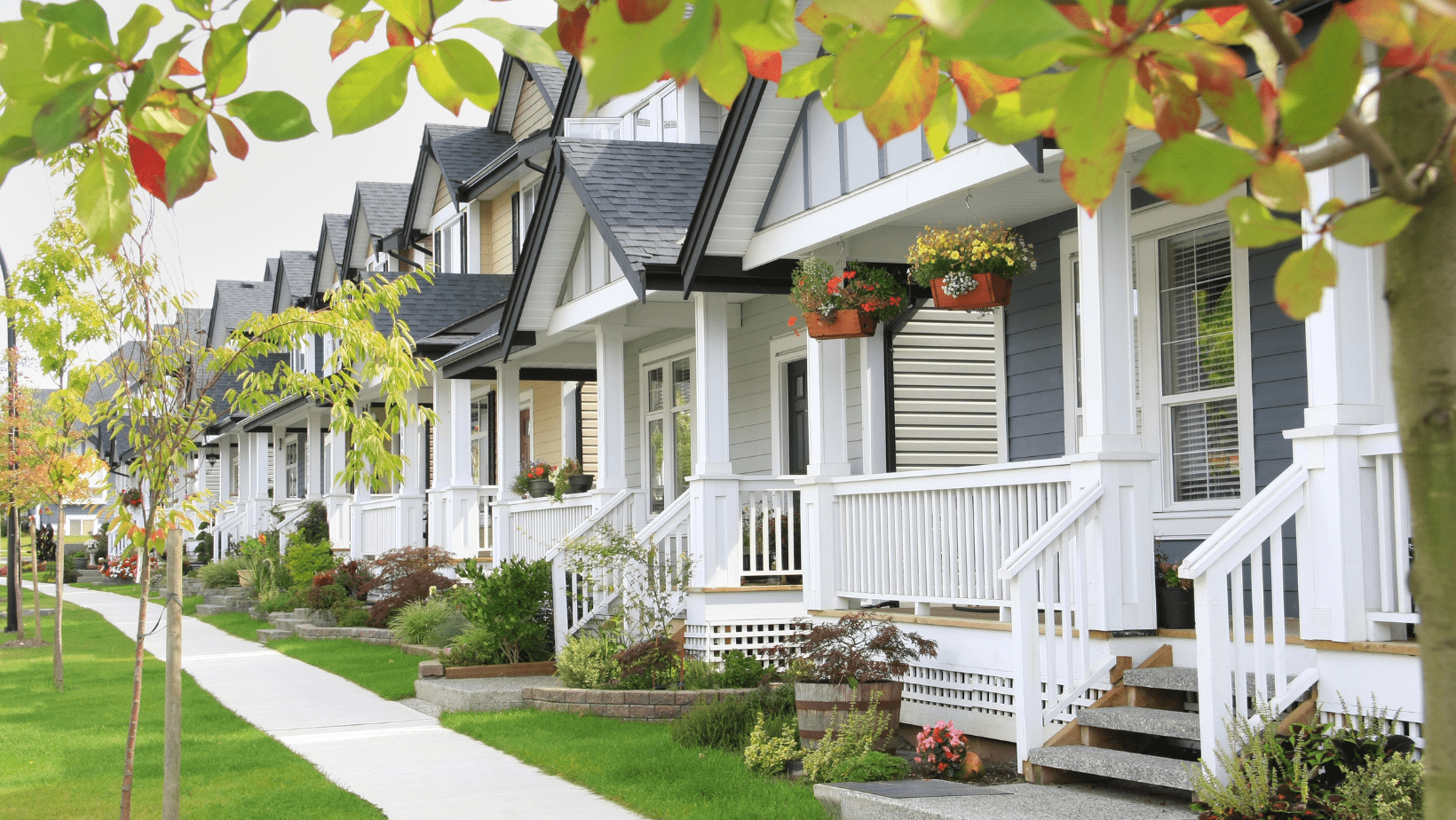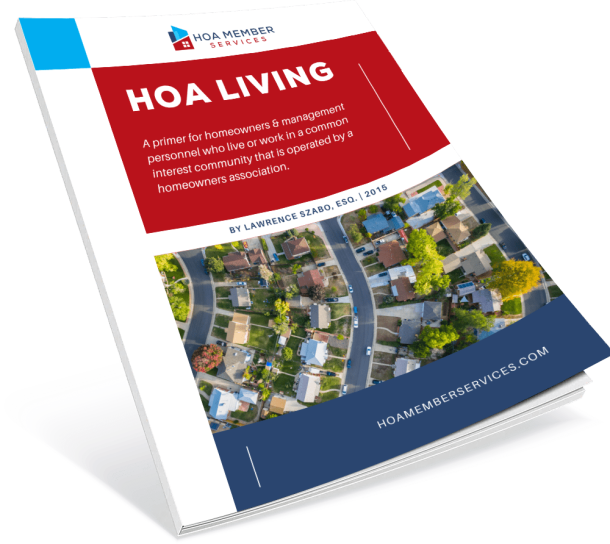Solar energy is growing fast, transforming rooftops across the country and helping homeowners take control of their energy costs. But if you live in a neighborhood governed by a homeowners association (HOA), the road to installing solar panels might not be as straightforward as you’d expect.
As interest in solar continues to rise, more people are discovering that HOA rules — many of which were written before solar was even on the radar — can throw up frustrating barriers.
Whether it’s restrictions on panel placement, aesthetic concerns, or outright denials, HOAs often have a say in what you can (and can’t) do with your roof.
Can you get solar if you reside in an HOA?
The good news is yes, but the full answer depends on the state you live in. Some states have strong solar access laws that limit what HOAs can control, while others leave more room for interpretation.
This article will explore your rights as a homeowner, explain how HOA rules interact with state laws, and offer practical advice for getting solar approved, even in the most rule-heavy communities.
So, if you’ve ever wondered whether your HOA can stop you from going solar, you’re in the right place.

How HOAs Work When It Comes to Solar
Thinking about installing solar panels in your home? Great move — but if you live in a neighborhood with a Homeowners Association (HOA), there’s one more layer to the process that can catch people off guard.
While going solar is a smart investment for both the environment and your energy bills, navigating the rules of an HOA can be complicated.
First, what even is an HOA?
Let’s start with the basics. A Homeowners Association is a governing body, usually made up of residents, that sets rules for how homes in the community should look and function.
Their goal is to maintain property values and neighborhood aesthetics, which means they care quite a bit about what ends up on your roof. Solar panels, while increasingly popular, are still considered a major exterior modification. That puts them directly on the HOA’s radar.
Why? Because solar panels change the look of your home, and HOAs are all about preserving a certain aesthetic.
Here’s what that usually means:
- Architectural Guidelines: Most HOAs have a document that outlines what is and isn’t allowed when it comes to changes on the outside of your home. This includes everything from landscaping choices to paint colors — and yes, solar panel systems. These guidelines are created to ensure a cohesive look across the neighborhood, and solar panels are often subject to specific requirements regarding size, placement, and even color.
- Approval Process: Before installation, you’ll likely need to submit an official request to your HOA’s architectural review committee. This process usually involves detailed documentation, such as diagrams of where the panels will be placed, the type and color of the panels, and how they will be mounted. The timeline and complexity of this process can vary. Some HOAs approve quickly with minimal hassle, while others require multiple rounds of back-and-forth communication.

So, the answer to “Do I need HOA approval to install solar panels?” is almost always yes. Even if your state has laws that protect your right to go solar, you may still need to follow your HOA’s process for review and notification.
Skipping this step could lead to fines or, worse, being forced to remove your system.
However, one of the most important things to know is that every HOA operates differently, and rules can vary widely. What’s acceptable in one community might be strictly prohibited in another.
For example, one HOA might allow panels on any part of the roof, while another might restrict installations to the rear-facing side only. Some HOAs prioritize aesthetics over energy efficiency, which can lead to frustrating compromises.
The Legal Landscape: Your Rights Might Be Stronger Than You Think
If you live in a neighborhood with a homeowners’ association, the idea of installing solar panels might seem like a legal dead-end. After all, HOAs are notorious for strict design standards, and solar often falls into the crosshairs.
But here’s where it gets interesting — in many cases, state law can actually override HOA restrictions when it comes to solar energy. You might have more rights than you realize.
Many states have passed what’s known as solar access laws — a set of legal protections specifically designed to prevent unreasonable restrictions on the installation and use of solar energy systems.
These laws are part of a growing push to make clean energy more accessible to homeowners, and they can play a pivotal role in disputes between homeowners and their HOAs.
To understand these protections, it’s helpful to break down two key legal concepts:
- Solar rights: These refer to your legal right to install and operate a solar energy system on your property. These laws often limit an HOA’s ability to prohibit solar panels based on aesthetic concerns alone. In some states, solar rights are protected to the extent that HOAs cannot deny installation unless they have a compelling reason; “it doesn’t match the neighborhood” usually does not suffice.
- Solar easements: These are legal agreements that ensure your solar panels have continued access to sunlight. This might involve securing a written agreement with neighbors or nearby property owners to prevent future structures or landscaping from casting shadows that would diminish your system’s effectiveness.
The reality is that solar access laws can differ dramatically from state to state. Some states, like California, Florida, and Arizona, have comprehensive solar rights laws that strictly limit the authority of HOAs to deny or delay installations.
Others are more ambiguous, offering minimal protection or deferring to HOA discretion. And then there are states that fall somewhere in the middle, where HOAs can impose “reasonable” restrictions — a term that’s open to interpretation and often the source of legal disputes.
What’s crucial to know is that state law often trumps HOA rules, but not always. In some cases, courts have sided with homeowners asserting their right to go solar, especially when state law supports their case. In others, the HOA has prevailed when the restrictions were framed as reasonable or compliant with local zoning laws.
So, before assuming you’re stuck with the status quo, it’s worth investigating the specific laws in your state. You may find that your right to harness solar energy is already protected — and that your HOA can’t stand in the way as easily as you thought.

A Look at Solar Access Laws By State — Can Your HOA Block Solar?
Whether you’re eyeing rooftop panels to cut energy bills or just want a more sustainable setup, living in a homeowners association (HOA) community can sometimes throw a wrench in your solar dreams.
The rules around solar access aren’t the same everywhere — in fact, they vary wildly from state to state. Some states back you up with strong legal protections, while others let HOAs call the shots.
Here’s a breakdown of how a few key states handle it:
California
Can HOAs prevent solar panels in California? — Not really.
California is one of the most solar-friendly states in the United States, and this is reflected in its laws. The California Solar Rights Act (Civil Code Section 714) makes it illegal for HOAs to outright ban solar panel installations.
They can make reasonable restrictions, like where panels go or how they look, but they can’t make it so hard that it significantly increases cost or reduces performance. In fact, courts have sided with homeowners in multiple cases where HOAs tried to get too picky.
So, if you’re in California, you’ve got some serious sunshine — both literal and legal — on your side.
Georgia
Can an HOA deny solar panels in Georgia? — Yes, and it happens.
Georgia law doesn’t stop HOAs from banning solar panels, and many do. While a few local ordinances support solar access, there’s no statewide protection.
Some homeowners have been forced to give up on solar entirely because their HOA said no, even when the panels wouldn’t be visible from the street.
That said, a few communities are starting to warm up to solar, and with the right conversations (and maybe a few neighborly petitions), there are occasional workarounds.
Virginia
Can HOA prevent solar panels in Virginia? — Kind of.
Virginia takes a middle-ground approach. HOAs can’t ban solar panels outright, thanks to state law, but they can regulate how and where they’re installed.
That means you might need to place them on the back of your roof or follow specific design standards. As long as you play by the rules, and the HOA’s restrictions aren’t so tight that they kill your system’s efficiency, you’re in the clear.
One tip: bring a solid proposal and proof of performance impact if you’re worried about a denial.
Oklahoma
Can HOAs prevent solar panels in Oklahoma? — In most cases, yes.
Oklahoma doesn’t offer legal protection for homeowners wanting to go solar in HOA-governed areas. That means your HOA can say no without giving you much recourse.
A few local municipalities might be more supportive, but on the state level, the law is silent, and silence usually favors the HOA. If you’re in Oklahoma and serious about solar, you’ll likely need your HOA’s explicit permission.
Ohio
Can HOAs prevent solar panels in Ohio? — Yes, unless your HOA allows them voluntarily.
There’s currently no state law in Ohio protecting homeowners from HOA restrictions on solar panels. Some associations are more flexible and allow solar under certain conditions, but others hold firm against it.
A few recent advocacy pushes are working to change that, but for now, you’re at the mercy of your community’s governing documents.
What About the Rest of the Country?
If your state wasn’t covered here, don’t assume the rules are the same. States like Texas, Arizona, and Colorado have their own unique takes — some supportive, some restrictive.
Your best move? Check your local laws and dig into your HOA’s bylaws before making any solar plans. Solar freedom is coming — but depending on where you live, it might take a little extra legwork.
What to Do If Your HOA Pushes Back
If your homeowners’ association isn’t on board with your plans to install solar panels, don’t give up just yet.
Pushback from an HOA is more common than you might think, but there are smart, strategic steps you can take to move the conversation forward and protect your right to go solar.
1. Start By Reviewing Your CC&Rs
Your first step should always be to carefully read your community’s Covenants, Conditions & Restrictions (CC&Rs). This document outlines the rules that govern what homeowners can and can’t do, and in many cases, solar installations are addressed directly.
Some HOAs have specific guidelines about the type, placement, or visibility of solar panels, while others may not mention them at all. Knowing exactly what your CC&Rs say can help you determine whether the HOA’s objections are grounded in policy or simply based on preference.
2. Document Every Step of The Process
From the moment you submit a request to your HOA, make sure to document every interaction. Keep a record of your formal application, any email correspondence, responses from the board, and any verbal conversations (summarized in writing).
If your request is denied, ask for a written explanation that cites the exact rule being enforced. This level of documentation is not just for your own records — it can be critical if you need to escalate your case or seek legal advice.
3. Engage With Your Community and the Board
Sometimes, progress starts with building relationships. Talk to your neighbors to see if others have faced similar issues or are also interested in solar. Attend board meetings, ask questions, and present your case in a respectful, well-prepared manner.
HOAs are often more receptive when homeowners show they’ve done their homework and are willing to work within the system. If you can rally support from fellow residents, your HOA may be more inclined to reconsider.

4. Get Expert Support When Needed
You don’t have to navigate this process alone. We offer practical tools and professional support to help homeowners like you advocate for your rights. Whether you need access to HOA-specific attorneys or want to use a strong, legally sound template letter to make your case, we’ve got you covered.
Our resources are designed to help you communicate more effectively with your board and stand your ground, while staying within legal and procedural boundaries.
Remember: While it can be frustrating to hit a wall with your HOA, with the right approach, clear communication, and the support of trusted resources, you have a much better chance of turning that “no” into a “yes.”
How to Get Approval (and What Not to Do)
Getting approval for solar panels from an HOA is usually doable if you go about it the right way.
Here’s how to keep the process smooth and stress-free:
- Follow submission procedures: Every HOA has its own set of rules and paperwork. Find out exactly what’s required, and don’t wing it. Missing one document could delay your approval for weeks — or worse, get you denied.
- Use licensed contractors: HOAs often want to make sure your installation is up to code and professionally done. Hiring a licensed and insured solar contractor not only gives your HOA peace of mind but also shows you’re serious about doing things right.
- Suggest alternatives if placement is a concern: Some HOAs might not love the idea of panels facing the street or on visible parts of your roof. If that’s the case, come prepared with alternative placements that still let you get solid sun exposure. A little flexibility can go a long way.
Now, let’s talk about what not to do:
- Don’t skip the HOA: No matter how excited you are to go solar, doing it behind your HOA’s back is not the move. Even if your state law protects your right to install panels, ignoring HOA rules can lead to serious consequences.
- Don’t install without approval: Trust us — installing first and asking for forgiveness later rarely ends well. You could be forced to take the panels down, pay penalties, or end up in a legal mess.
Bottom line: work with your HOA, not against it. A little patience upfront can save you from a major headache down the road and still get you all the sunshine savings you’re after.

Conclusion
So, can you get solar if you reside in an HOA?
Short answer: yes, but it really depends on where you live and what your HOA rules say. Some states have solar access laws that protect homeowners, while others leave more power in the hands of the HOA.
That’s why it’s crucial to check your state laws, dig into your community’s CC&Rs (Covenants, Conditions, and Restrictions), and talk to someone who actually knows how this stuff works.
The process can feel overwhelming, but you don’t have to navigate it alone. If you’re stuck, we’re here to help.
Our members get unlimited access to a professional HOA attorney, along with helpful guides, templates, and personalized support whenever they need it.
So, don’t let red tape get in the way of going solar. Join us today and get the personalized, expert-backed help that makes all the difference.


